When it comes to navigating healthcare expenses, understanding treatment costs can feel overwhelming. That's why having a clear and concise letter template for treatment cost estimation can be a game changer. This letter not only helps you communicate effectively with your healthcare provider, but it also ensures you get the information you need to make informed decisions about your care. If you're interested in streamlining this process and want to learn more about crafting the perfect letter, keep reading!
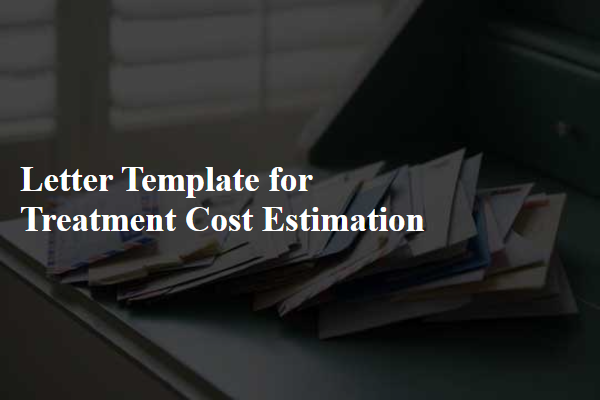
Patient's full name and contact information
Patient's full name, John Doe, residing at 1234 Elm Street, Springfield, IL, along with contact information which includes a phone number, (555) 123-4567, and email address, john.doe@email.com. Treatment cost estimation often involves a breakdown of expenses related to medical procedures, consultations, and potential follow-up care, ensuring clarity regarding insurance coverage and out-of-pocket expenses. Additionally, factors such as the complexity of the recommended treatment plan and the specific healthcare provider's pricing can significantly influence total costs.
Detailed description of treatment/procedure
A comprehensive treatment cost estimation for a dental procedure, such as a root canal therapy, involves various components. The initial consultation fee typically ranges from $100 to $250, where a dentist examines the affected tooth, usually a molar (positioned at the back of the mouth), and reviews radiographs (X-ray images) to assess the extent of decay or infection. The procedure itself, encompassing anesthesia (local numbing agent), costs between $700 and $1,500, depending on the complexity and duration. The materials used, such as gutta-percha (for sealing the tooth) and dental crowns (for restoration), can add an additional $200 to $2,000. Follow-up visits, usually two to three weeks later, to ensure proper healing and implement further restorative work also contribute to total expenses. Insurance coverage often varies, with many plans covering up to 80% of the procedure after deductibles, emphasizing the importance of verifying coverage prior to treatment.
Itemized cost breakdown
An itemized cost breakdown for medical treatment typically includes essential expenses associated with patient care. Initial consultation fees can range from $100 to $300, depending on the specialist's experience and geographical location, such as hospitals in New York City versus rural clinics. Diagnostic tests, including blood tests and imaging (MRIs or CT scans), may add another $200 to $2,500 based on the complexity and number of assessments performed. Treatment procedures, like surgeries or therapies, usually incur costs from $1,000 to $50,000, heavily influenced by the medical facility's prestige, such as top-tier institutions like Johns Hopkins or Cleveland Clinic. Follow-up visits, often necessary for monitoring recovery, can average $75 to $200 each, with multiple appointments typically required in chronic conditions. Additionally, medications prescribed during treatment can vary widely, ranging from $20 for generic drugs to several hundred dollars for specialized pharmaceuticals. Hospitalization costs, if needed, average $2,000 to $8,000 per day, reflecting the demand for inpatient care. Total treatment costs should consider these variables for a comprehensive financial expectation.
Expected duration and appointment dates
Treatment cost estimation for medical procedures typically includes a range of factors. Expected duration can vary significantly depending on the complexity of the treatment, with some procedures lasting only one to two hours, while others may require several days. Appointment dates are crucial in scheduling and can often depend on both the availability of medical staff and the urgency of the patient's condition. For example, initial consultations might be scheduled within one to two weeks, whereas follow-up appointments could range from weekly to monthly, depending on the treatment plan. Accurate estimations are essential for patients to prepare financially for medical expenses and manage their time effectively.
Payment options and insurance information
Treatment cost estimation involves analyzing the financial implications of medical care for patients. Various factors, such as the type of procedure (e.g., surgery, therapy), facility fee (specific to the hospital or clinic), and additional services (like anesthesia or diagnostics), shape overall expenses. Payment options typically include upfront payment, installment plans, or financing through healthcare credit providers. Additionally, patients should verify their insurance coverage through their provider, noting deductibles, copayments, and out-of-pocket maximums, which differ based on the insurance plan (e.g., HMO, PPO, EPO). Understanding these aspects ensures patients make informed decisions about their treatment and financial responsibilities.

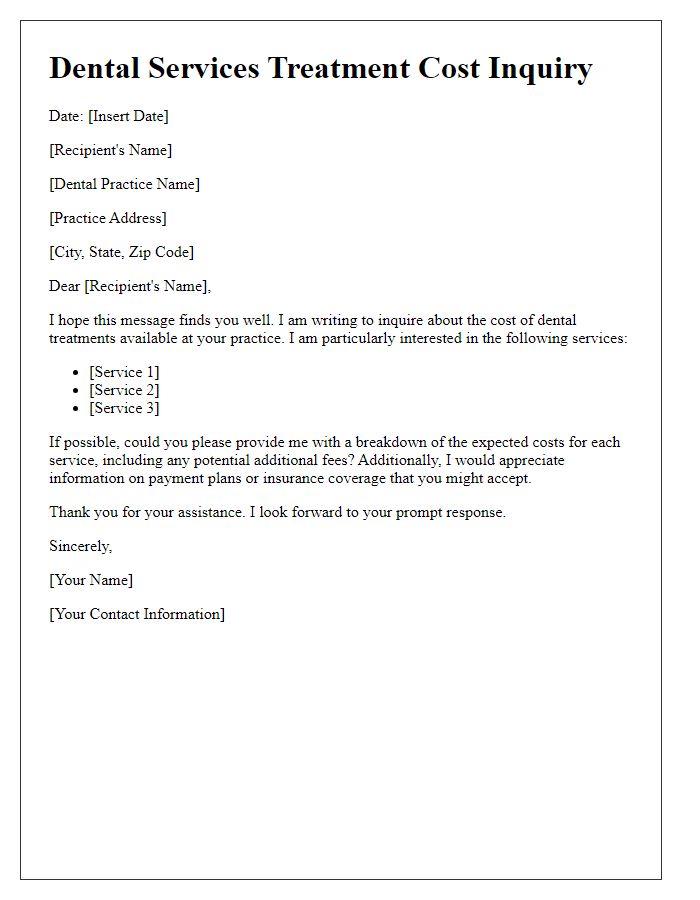
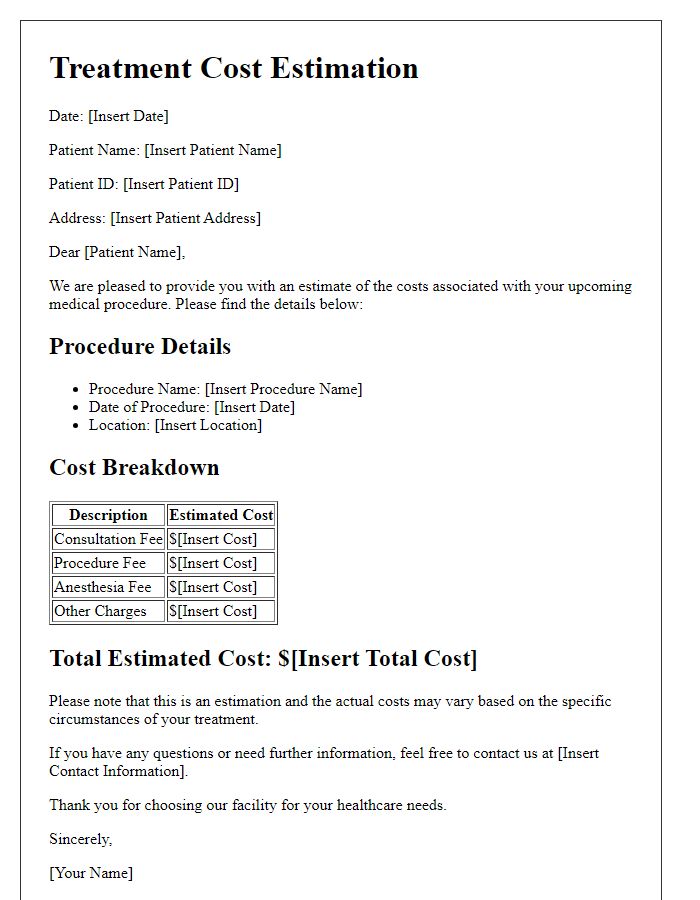
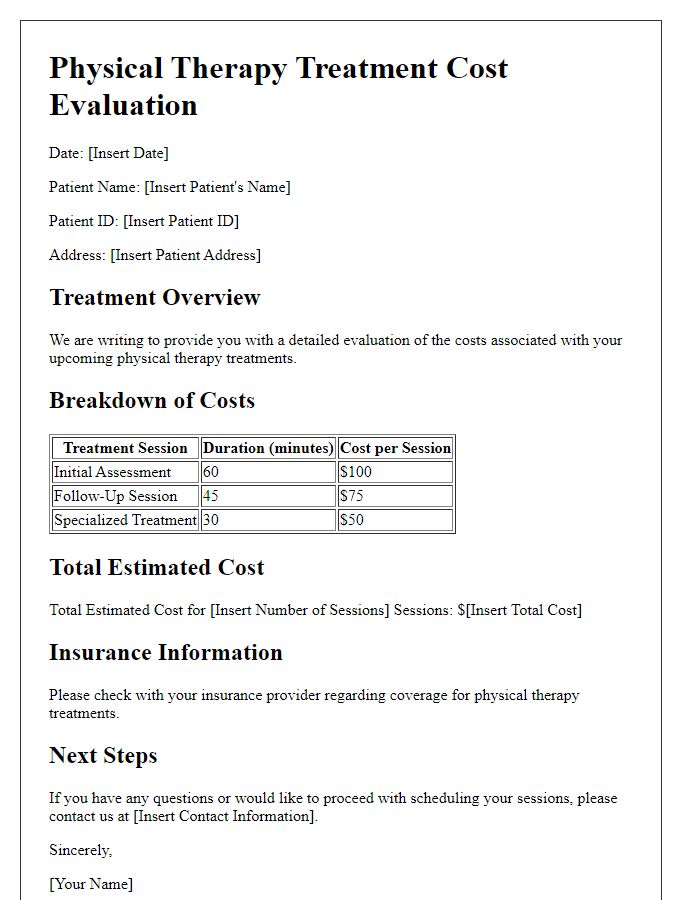
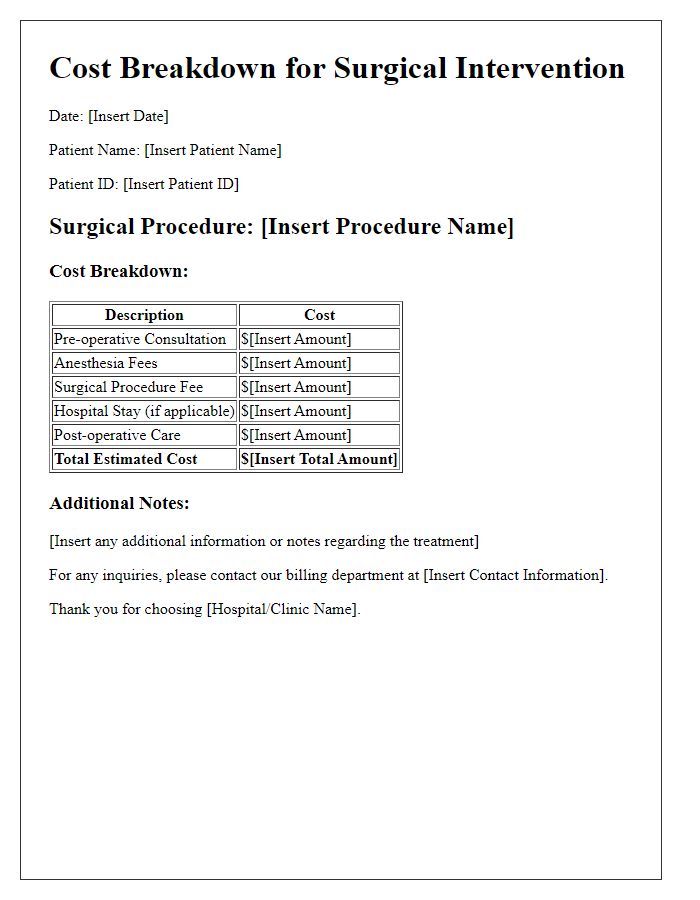
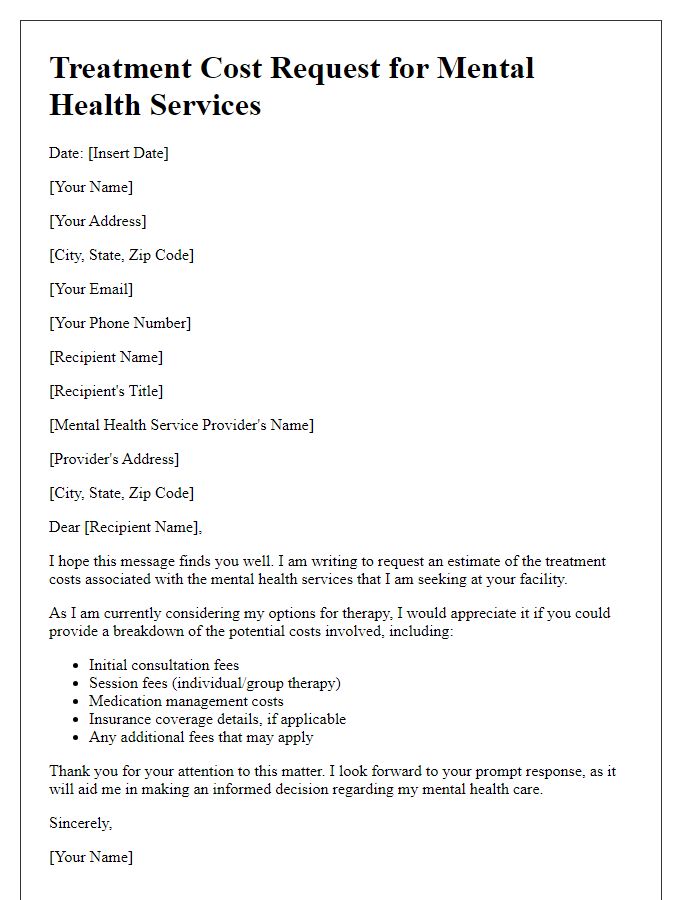
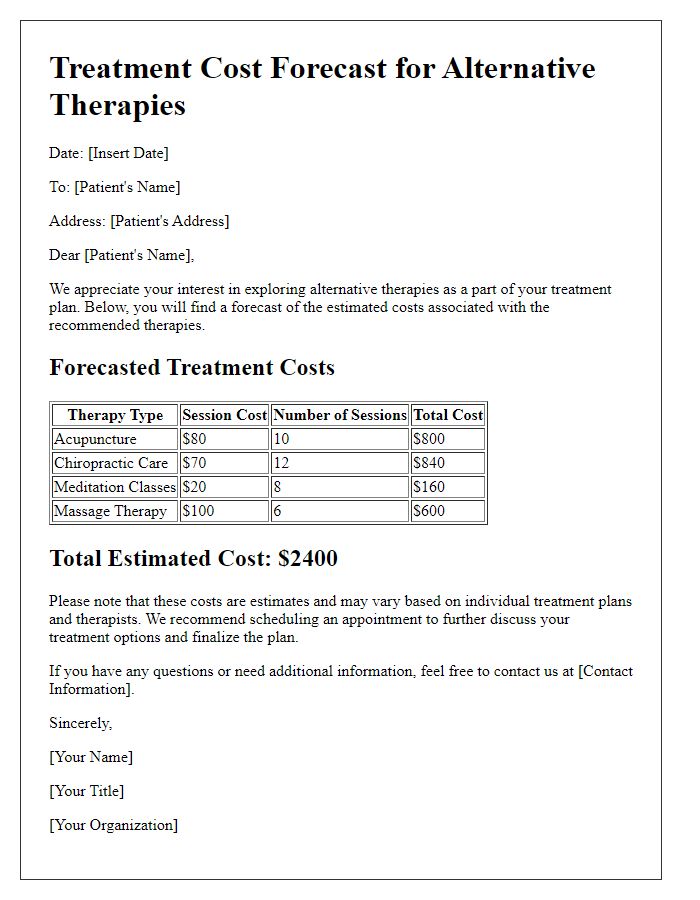
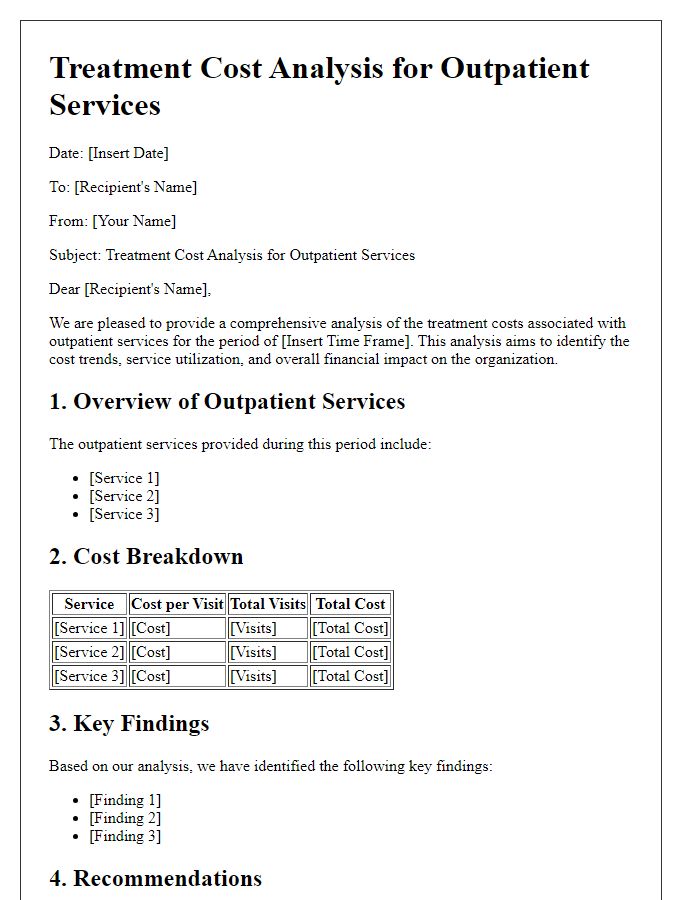
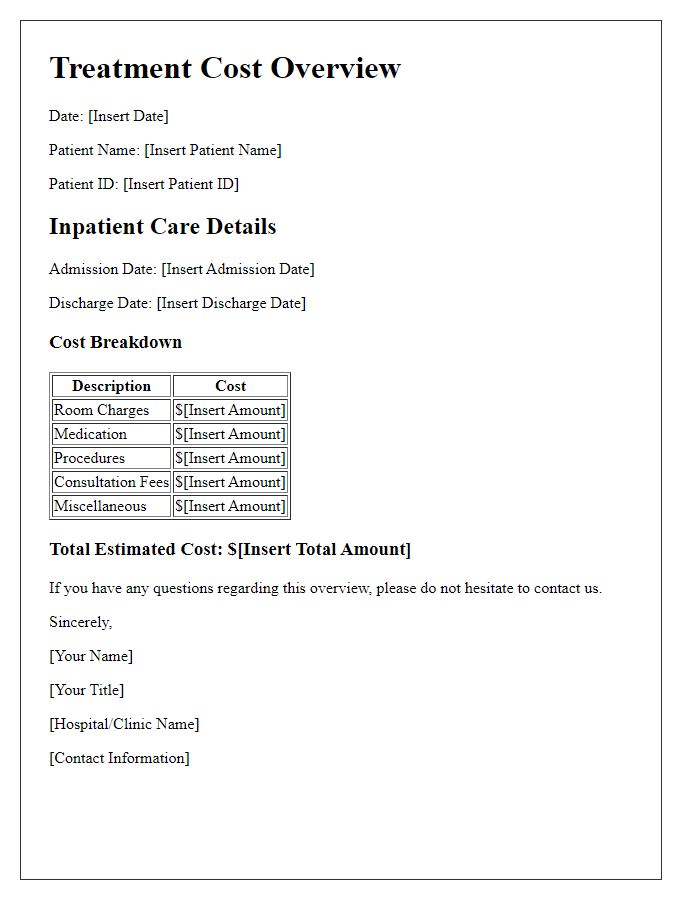
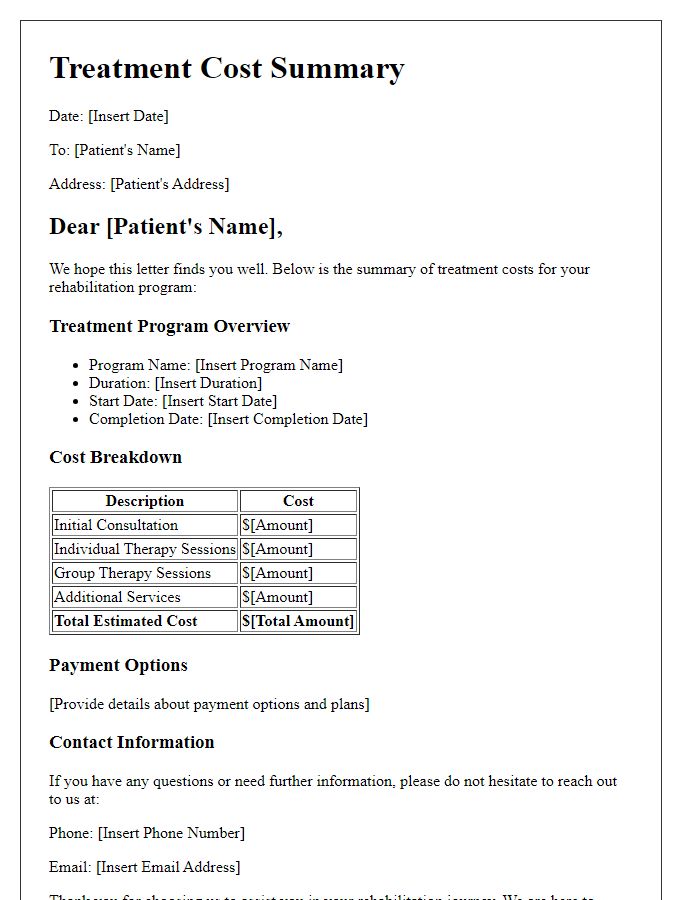
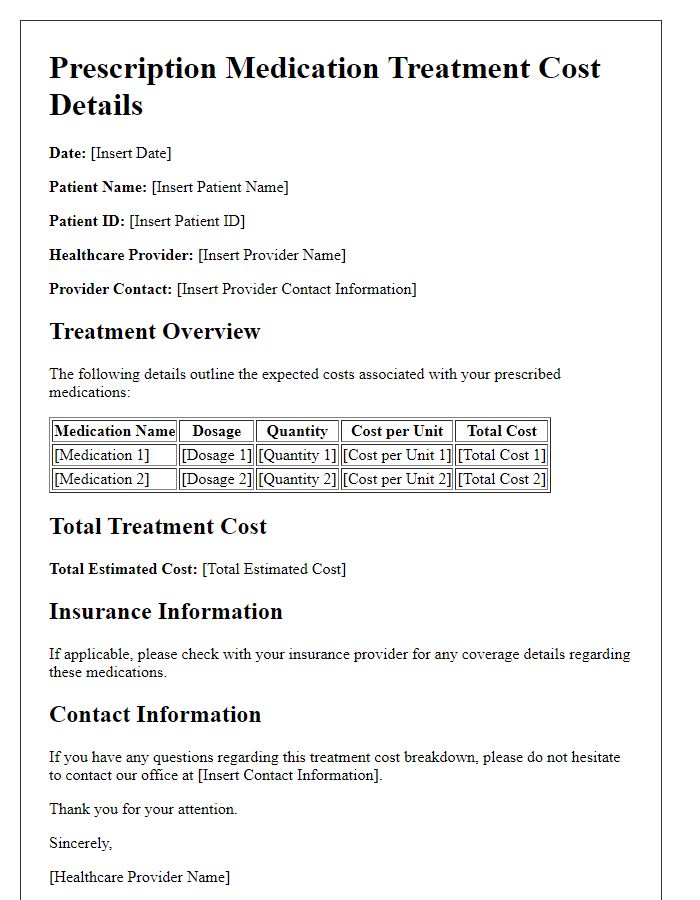


Comments